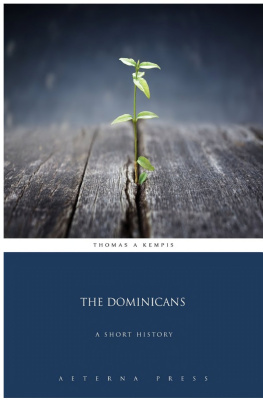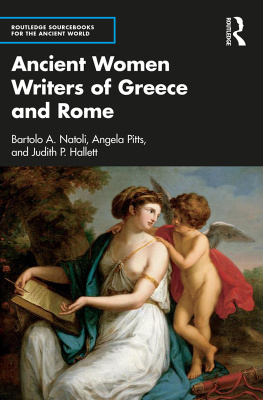DARING to WRITE
DARING to WRITE
CONTEMPORARY NARRATIVES BY DOMINICAN WOMEN
EDITED BY
ERIKA M. MARTNEZ

2016 by the University of Georgia Press
Athens, Georgia 30602
www.ugapress.org
Greas 2015 by Kersy Corporan
All rights reserved
Designed by Kaelin Chappell Broaddus
Set in 10/12.5 Century Old Style by Kaelin Chappell Broaddus
Printed and bound by Sheridan Books, Inc.
The paper in this book meets the guidelines for permanence and durability of the Committee on Production Guidelines for Book Longevity of the Council on Library Resources.
Most University of Georgia Press titles are
available from popular e-book vendors.
Printed in the United States of America
20 19 18 17 16 P 5 4 3 2 1
Library of Congress Cataloging-in-Publication Data
Names: Martnez, Erika M., editor.
Title: Daring to write : contemporary narratives by Dominican women / edited by Erika M. Martnez.
Description: Athens : The University of Georgia Press, 2016. | Includes bibliographical references.
Identifiers: LCCN 2015036980 | ISBN 9780820349251 (hardcover : alk. paper)
| ISBN 9780820349268 (pbk. : alk. paper) | ISBN 9780820349275 (ebook)
Subjects: LCSH : Dominican literature--Women authors--History and criticism.
| Dominican literature--History and criticism.
Classification: LCC PQ 7400.5. D 37 2016 | DDC 860.9/9287097293--dc23
LC record available at http://lccn.loc.gov/2015036980
FOR MY DAUGHTER, ALMA,
AND MY MOTHER, MERCEDES
CONTENTS
JULIA ALVAREZ
ERIKA M. MARTNEZ
NONFICTION BY ANGIE CRUZ
FICTION BY JINA ORTIZ
FICTION BY DELTA EUSEBIO ,
translated by Achy Obejas
NONFICTION BY ERIKA M. MARTNEZ
FICTION BY FARAH HALLAL ,
translated by Achy Obejas
FICTION BY ANA-MAURINE LARA
FICTION BY SHEILLY NEZ ,
translated by Achy Obejas
NONFICTION BY RHINA P. ESPAILLAT
FICTION BY NORIS EUSEBIO-POL ,
translated by Achy Obejas
NONFICTION BY NGELA HERNNDEZ ,
translated by Achy Obejas
NONFICTION BY NELLY ROSARIO
FICTION BY LISSETTE ROJAS ,
translated by Achy Obejas
NONFICTION BY JULEYKA LANTIGUA-WILLIAMS
FICTION BY SOFIA QUINTERO
FICTION BY MARIVELL CONTRERAS ,
translated by Achy Obejas
FICTION BY JEANNETTE MILLER ,
translated by Achy Obejas
FICTION BY LEONOR SUAREZ
FICTION BY KERSY CORPORAN
NONFICTION BY DULCE MARA REYES BONILLA
NONFICTION BY SHEREZADA (CHIQUI) VICIOSO
FICTION BY RIAMNY MNDEZ ,
translated by Achy Obejas
FICTION BY LUDIN SANTANA ,
translated by Achy Obejas
FICTION BY MIRIAM MEJA ,
translated by Achy Obejas
NONFICTION BY CAROLINA GONZLEZ
FICTION BY YALITZA FERRERAS
FOREWORD
JULIA ALVAREZ
I can still remember the day in 1985 that the phone rang in my office at the University of Illinois at Urbana-Champaign, where I worked in the creative writing program. Is this Julia Alvarez? a womans voice asked. I knew from her perfect pronunciation of the J in Julia that the woman was a Spanish-speaker.
S, I answered, because whenever my name is pronounced in Spanish, I automatically switch back to my native self. I mean, yes, I added, as the caller had spoken in English. Really, I meant both s and yes, but after two decades of living in areas of the United States where there were no Dominicans and few Latinos, I rarely got the chance to include all of me in whatever conversation was going on.
La conseguiste? Es ella? I could hear another woman speaking in the background.
Are you really Dominican? the caller was asking me.
I gave the caller a brief summary of my story: parents from El Cibao, met in Nueva York; my older sister and I born Stateside; the return home when I was three months old. Ten years later, we escaped to the USA, fleeing the dictatorship. Why was she asking?
We just read your book of poems, Homecoming, and the bio in the back said you were from the D.R., and we couldnt believe we hadnt heard of you. So weve been trying to locate you. She introduced herselfDaisy Cocco de Filippis, a Dominicana and a professor and critic of Dominican literature at Hostos Community College in New York. The woman I could hear in the background was Chiqui Vicioso, Dominican poet and activist, whose essay is included in this anthology.
Homecoming, my first book of poems, had been published more than a year ago. No one seemed to have noticed. No reviews, no articles, no fan or hate mail for that matter. I felt like Emily Dickinson, who described her poetry as my letter to the world / That never wrote to me. My own metaphor for our shared chagrin was a little different, maybe because I come from an island: I had cast that first book of poems into the world like the shipwreck who throws a bottle out to sea with her note inside it, hoping for rescue. It looked like my work would sink into anonymity without anyone ever seeing it.
But here were two readers telling me that they had read my book and responded to it with enough enthusiasm to set out in search of me. And they werent just readers, they were Dominicanas, fellow Scheherazades in the sultans court. I sat in the English Departments creative writing office, my heart in my throat. This was the homecoming that was the central theme of that first book. A coming home not just to a geographical place but to a space in the imagination where we find community and connection with others who, like us, struggle to put together the disparate parts of their experience and history in order to become the larger version of themselves.
So began my connection to a community that continues to inspire me. It was through Daisy Cocco de Filippis that I discovered other Dominicanas, largely unpublished, based in Nueva York writing in English and Spanish; through Chiqui that I was introduced to Dominican women writers, both contemporary and historical, including that important model for us, Salom Urea (18501897), the first poet to win the national medal of poetry in the Dominican Republic, quite an achievement at a time when females were not given educations.
I was reminded of Daisys and Chiquis search for me and of our homecoming as authors and readers of each others work as I read Erika Martnezs anthology of contemporary Dominican women writers, Daring to Write. With its publication, Erika has done for all of us what Chiqui and Daisy did for me. Erika has dared to embark on a journey of discovery for herself as an accomplished writer in need of models and for readers in search of representative voices from historically silenced populations of our hemisphere. In her introduction, Erika explains that even in her Latin American literature classes in graduate school she found no Dominicanas represented in the syllabus or in her anthologies. Some progress has been made in the three decades since Daisy and Chiqui and I found each other. Back then, there were no Latinos or Latinas represented in the canon, period, not just no Dominican-American authors. The big boom in multicultural authors was still years ahead. That vacuum in visibility and accessibility of Latino authors has begun to be addressed but is still the status quo with Dominican women writers. Until now. This collection adds those mostly missing voices to the store of world literature.
The diversity Erika weaves into this remarkable collection is not limited by geography (as the imagination never should be). Understanding that distinctions of borders are no longer adequate to represent the hybrid and scattered communities we truly live in, she has collected Dominican writers both in the U.S. and on the island, writing in English and in Spanish. (Achy Obejass wonderfully skilled translations make the Spanish language writers flow just as beautifully in English.)
Next page



